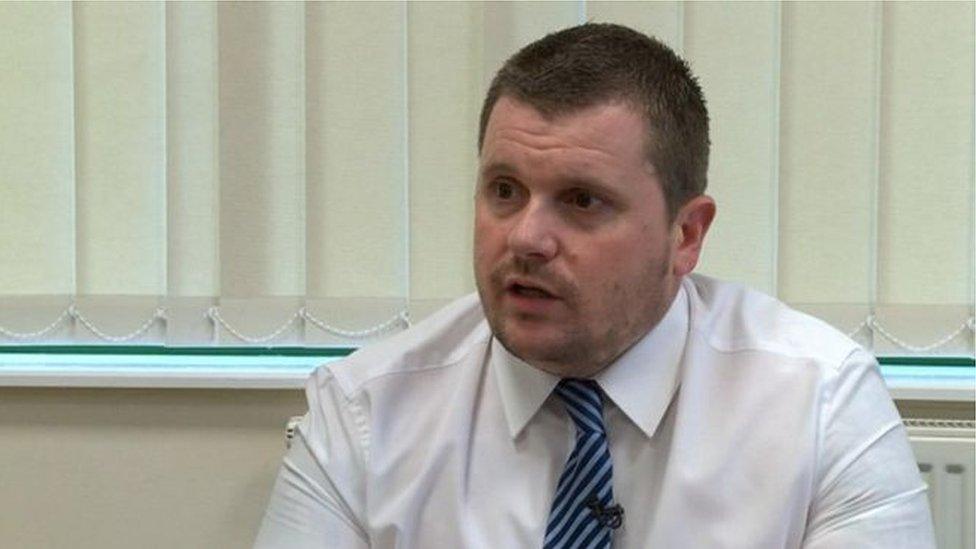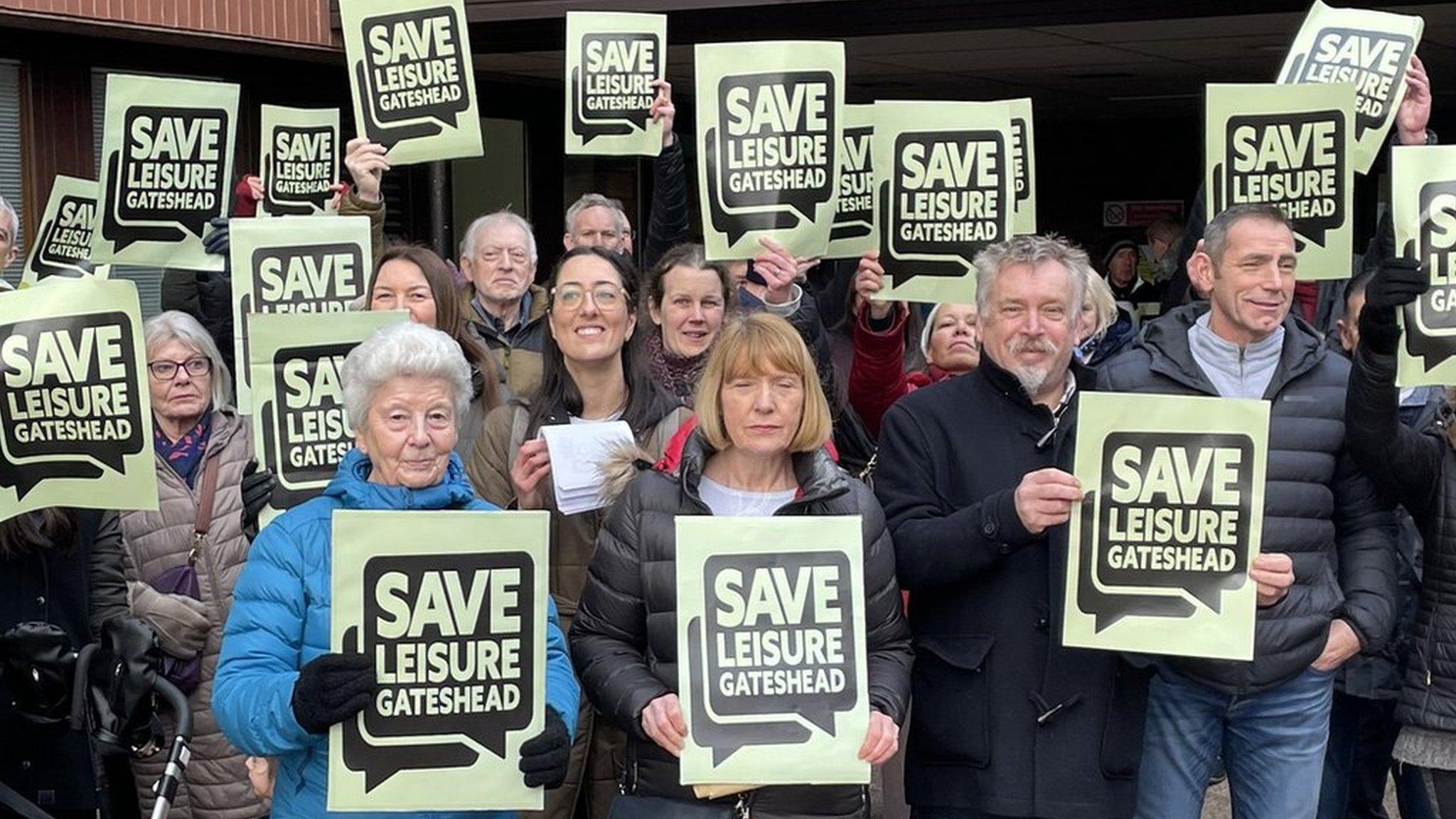Cuts warning as Welsh councils face £395m shortfall
- Published

Andrew Morgan is the leader of Rhondda Cynon Taf council and the Welsh Local Government Association
A council leader has warned his local authority will get to a point where it will only do what it legally has to.
Andrew Morgan, leader of Rhondda Cynon Taf council, said the council will have to trim back and "ultimately only do statutory things".
It comes as BBC research found Welsh councils expect a combined shortfall of £394.8m over the next two years.
Schools budgets are stretched and the cost of providing social care was soaring, councils said.
Ministers said they were working with councils, but public finances were under pressure from high inflation.
The BBC's Shared Data Unit surveyed councils on their budgets.
Of Wales' 22 councils, 17 said they needed to save £182m this year, 20 predicted a combined two-year shortfall of £394.8m, and 10 had raised council tax by at least 5%.
Speaking to Radio Wales Breakfast, Labour's Andrew Morgan, described a "decade of ringing alarm bells" about the pressure on budgets.
"The concern is that we are really running out of road to make more and more savings," he said.
"We're reducing our head counts due to vacant posts and making savings wherever is possible but it is really now coming to the point where some services may become unsustainable going forward.
"Many local authorities like my own do over and above what the statutory function is. That's been done for the right reasons over many years.
"But we're getting to the point where we will have to trim back and ultimately only do statutory things. And that means that some services and some care that we've done for the last 20 or 30 years will become unaffordable in the future."
Rhondda Cynon Taf planned to make the biggest saving of any council this year, at £27.8m.
But the £16.5m planned in Powys works out at £123.50 per person in the county - the biggest saving per head.
It follows earlier warnings about council-run services feeling the pinch from budget cuts, rising energy bills and high inflation.
A Senedd committee said last month that extra funding was needed to keep libraries and leisure centres open.
'Difficult decisions'
James Gibson-Watt, the Liberal Democrat leader of Powys Council, told BBC Radio Wales Breakfast: "There's only so long that councils can go on shaving costs off individual services.
"There's a phrase that's used 'salami slicing' - which is a very accurate way of describing what local authorities have had to do over the years, looking for savings here, there and everywhere.
"Eventually, you get to the point where there is no more to slice. You then have to start looking at a fundamental change to the way you do things, and that's what we're having to do."

Councils fund schools, care services, waste collections and some local transport
The Welsh Local Government Association said councils had balanced the books by spending money that was set aside for unexpected costs, but "this is not sustainable".
In a statement it said: "We are also worried about the implications for next year and in the medium-term.
"Cuts will have an impact on services and jobs.
"We estimate a budget gap could open up of between £330m to £480m next year which will have a serious impact on local service delivery, and we are currently surveying councils to get more precise estimates and assess the risks."
The Welsh government, which provides councils with most of their funding, blamed inflation and "economic mismanagement" by successive UK governments over 13 years, leading to "the most difficult financial situation since the dawn of devolution".
Funding has increased this year, but a spokesperson said: "We recognise that local authorities are facing difficult decisions and we continue to work closely with councils to meet the shared challenges we face."
A UK government source responded: "The UK government has provided record levels of funding to the Welsh government, resulting in 20% more per head than in England.
"The Welsh Labour government should spend less time wasting taxpayers' money on vanity projects, banning meal deals and instructing firefighters to enforce new speed limits, and more time on ensuring that Welsh public services have the funding they need to deliver for the people of Wales."
Welsh Conservative local government spokesman Sam Rowlands called on ministers in Cardiff to review their "unfair and inadequate local government funding formula", which left some councils with large financial reserves and others warning "they won't be able to provide basic services".
Your device may not support this visualisation

YR WYDDFA: Life on Britain's busiest mountain
WALESCAST: In-depth analysis of Welsh politics

Related topics
- Published21 August 2023

- Published9 August 2023

- Published20 July 2023

- Published8 February 2023

- Published12 January 2023
